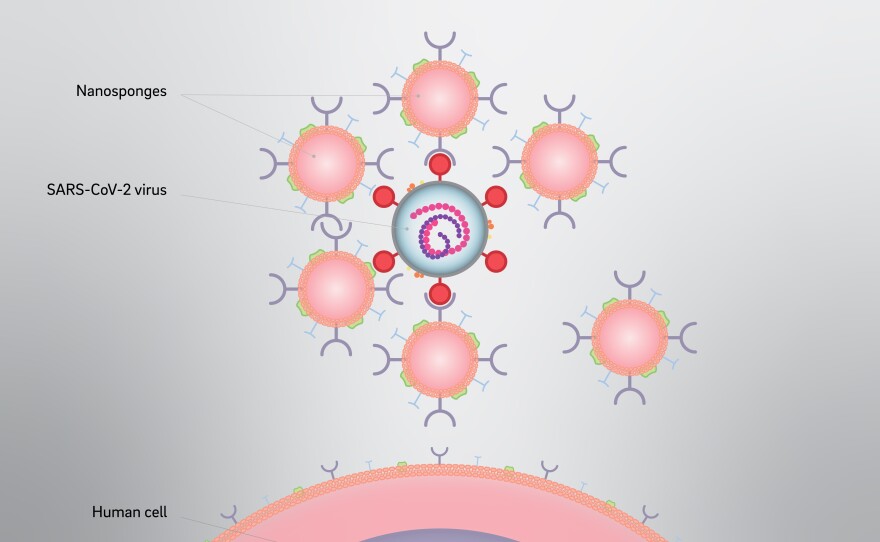UC San Diego researchers say a new type of technology, called "nanosponges" can be used to stop the coronavirus from infecting human cells and multiplying.
The research is out Wednesday, June 17 in the peer-reviewed journal Nano Letters.
The tool is not exactly an antiviral drug. Antivirals works by targeting and trying to stop the virus itself. Nanosponges, on the other hand, focus on human cells and guard them, so they can't be infected by the virus.
The method works like this: Scientists take tiny particles, which are biodegradable and can leave the human body, and cloak them in cell membranes from organs, like the lung. Because these particles have human cells, the virus or toxin is attracted to them. So instead of infecting cells in the body where it can actually stick and multiply, the virus goes after these particles instead and becomes less effective.
Liangfang Zhang, a nanoengineering professor at the UC San Diego Jacobs School of Engineering, has been working on these nanosponges for about a decade. When the coronavirus pandemic took off, he decided to create some that could target SARS-CoV-2. Zhang came up with two types of nanosponges that are shown in lab studies to be highly effective, causing the coronavirus to lose 90% of its infectivity. The technology is being tested by researchers at Boston University.
"The biggest advantage is that it can potentially be agnostic to viral mutations," Zhang said. "It's not targeting the individual virus or virus species. It's protecting our host, the cells, our lung, our organs."

The tool could have a more long-term impact, he said. Viruses mutate, which means antiviral therapies may have to go through updates. The sponge, however, is only concerned about protecting the organ, so it will fend off whatever bacteria or virus is thrown at it, regardless of its mutation or form, Zhang said.
"We are currently demonstrating the efficacy in petri dish," he said. "So the immediate next step is to validate this technology in appropriate animal models."
“I see potential for a preventive treatment, for a therapeutic that could be given early because once the nanosponges get in the lung, they can stay in the lung for some time,” he added. “If a virus comes, it could be blocked if there are nanosponges waiting for it.”
Currently, nanosponges are being developed to treat bacterial pneumonia. They have undergone all stages of pre-clinical testing by, Cellics Therapeutics, a San Diego start-up Zhang co-founded.
"For COVID-19, I hope other teams come up with safe and effective therapies and vaccines as soon as possible," he said. "At the same time, we are working and planning as if the world is counting on us."







